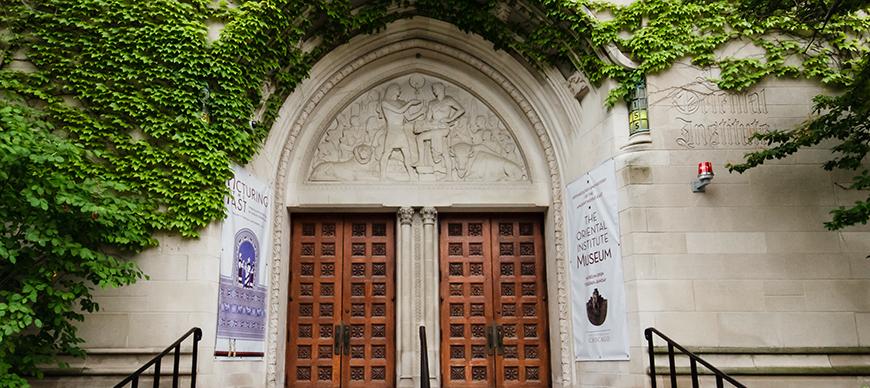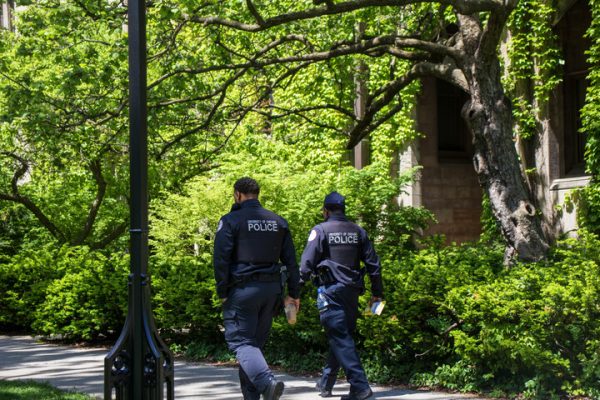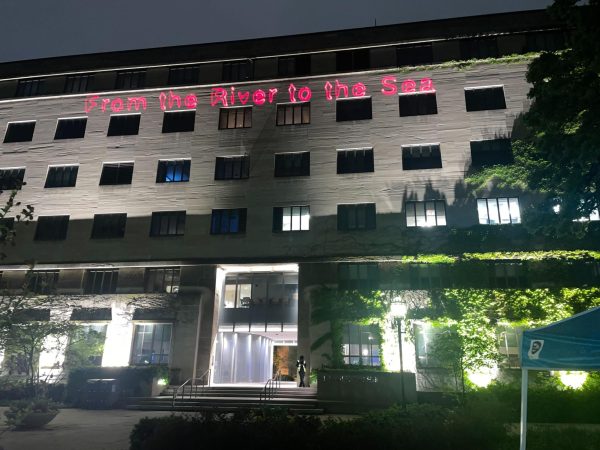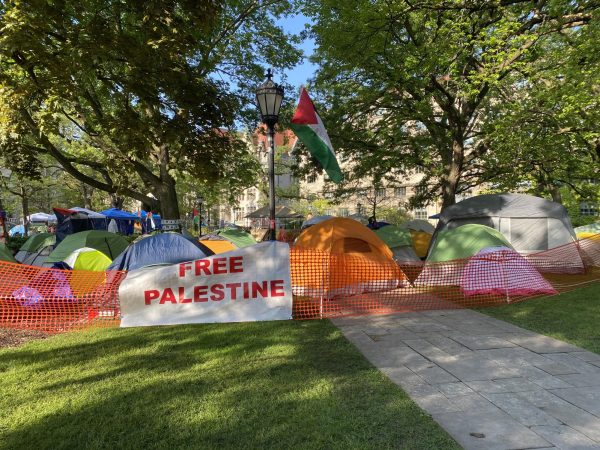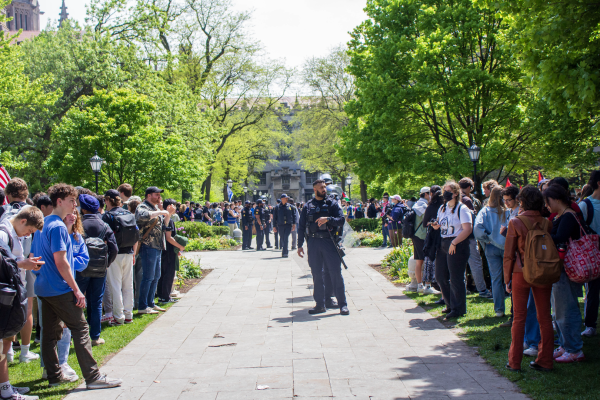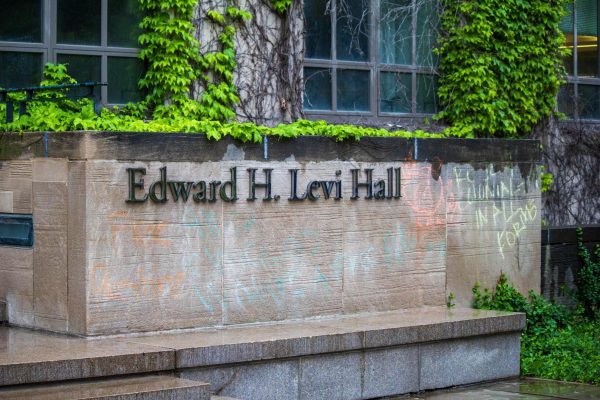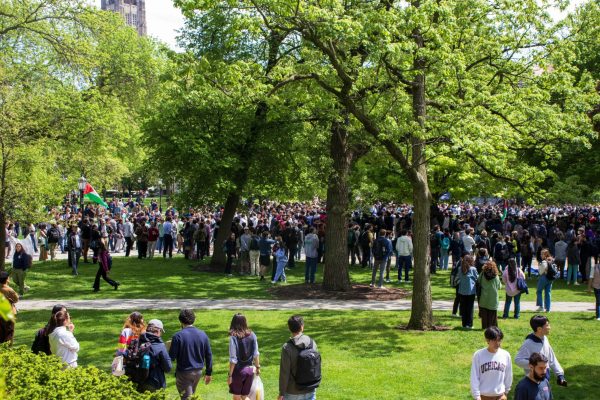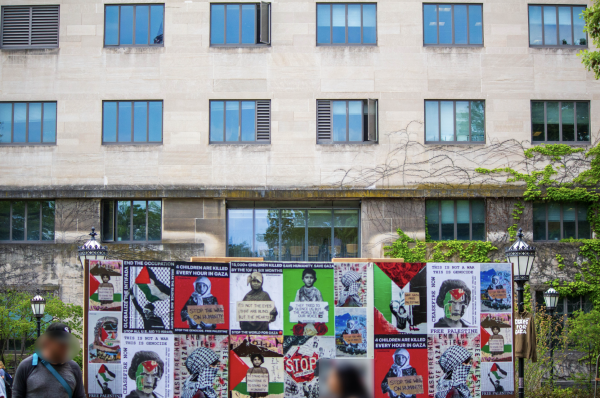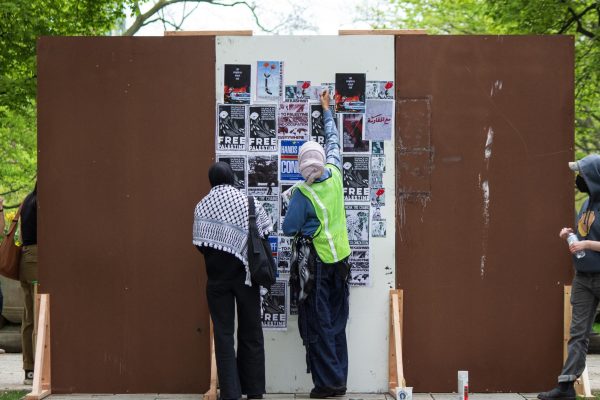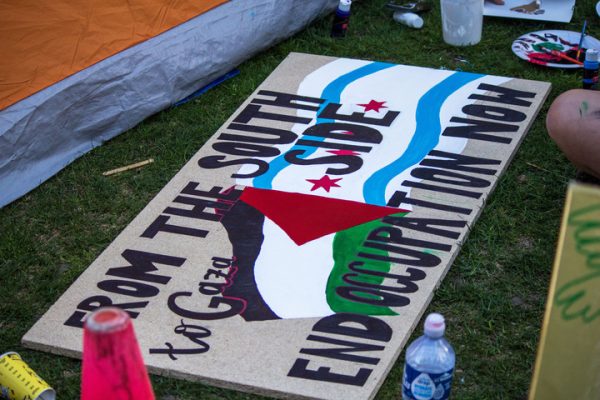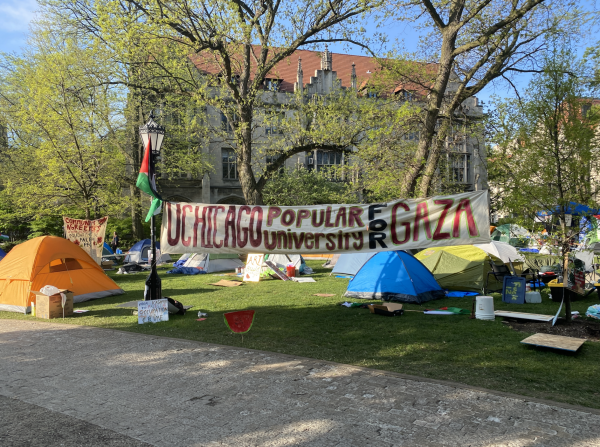Atlantic Writer Elizabeth Bruenig Kicks Off New Public Thinking Lecture Series
The lecture series, a collaboration between The Point Magazine and the UChicago Parrhesia Program for Public Discourse, explores the intersections of philosophy, journalism, politics, and religion.
Institute for the Study of Ancient Cultures
The Institute for the Study of Ancient Cultures
April 17, 2023
Atlantic writer and Pulitzer Prize finalist Elizabeth Bruenig gave a public lecture titled “At the Limits of Forgiveness” at the Institute for the Study of Ancient Cultures on March 27. The lecture discussed forgiveness’s role in various disciplines, including the criminal justice system, social media, and everyday arguments.
The lecture was the first in a new Public Thinking Lecture series that will be hosted at the University. The series is jointly organized by The Point Magazine, a Chicago-based literary magazine formed by three former UChicago doctoral students in the UChicago Committee on Social Thought, and the Parrhesia Program for Public Discourse, a UChicago undergraduate curriculum focused on critical thinking, rhetorical theory, and research.
The Program, directed by academics and journalists, “seeks to inspire a more thoughtful, self-reflective, and pluralistic public discourse,” its website reads. “We are committed to supporting the sort of responsible thinking necessary for sustaining an ethically responsive public.”
In his introduction of Bruenig, faculty director of the Parrhesia Program for Public Discourse Christopher Wild discussed the origin of the lecture series. “Public thinking. Isn’t that an oxymoron?” Wild said. “Historically, we thought that contemplative life requires withdrawal from the hubbub of public life…Today, the pressures on public thinking—on responsible and vigorous thinking in public—have become significantly intense and extensive.”
During the talk, Bruenig discussed how forgiveness, mercy, and culpability surface in a diverse range of subjects, from her own children’s fights to adultery or prisoners on death row.
Forgiveness, Bruenig argued, is separate from culpability for, or ownership of, an action. She cited two separate examples: a woman who cheated on her husband and a woman who, facing mental health struggles, killed her three children. Much of society, Bruenig said, forgave the latter woman, viewing her actions as outside of the woman’s control and consciousness. In the first scenario, however, the husband forgave his wife and was criticized online for his decision.
“So, for forgiveness to apply, one needs genuine culpability on behalf of the wrongdoer to which that person can allocate, repent,” Bruenig said.
She later discussed the significance of context when analyzing a conflict, including defining the instigator and the retaliator. Specifically, she described a typical “she started it” argument between her two daughters and explained with whom she would side in the specific scenario.
“When I can reasonably ascertain who did actually instigate the conflict, I take measures to reverse their action…while the other child is usually the recipient of some kind of reparation,” she said.
Bruenig also wove discussions of social media debates and online forgiveness into her talk, touching on the ease with which one could express anger toward others in a low-risk online environment in which all users were anonymous.
“Yelling at people is something you don’t get to do all the time, only when you’re really mad, so you have to go acquire a reason to be mad,” she said.
Following the talk, Bruenig held a Q&A session. Her visit to UChicago included leading a small seminar for undergraduates titled “Moral Divides: A Journalism Workshop with Elizabeth Bruenig” the following day. Later that evening, she and philosophy professor Agnes Callard held a conversation for the Night Owls lecture series titled “Must We Forgive Those Who Have Wronged Us?”. The lecture was the sequel to Bruenig’s appearance at the Night Owls series in 2021.
Future events in the Public Thinking lecture series will be posted on the program’s website.


